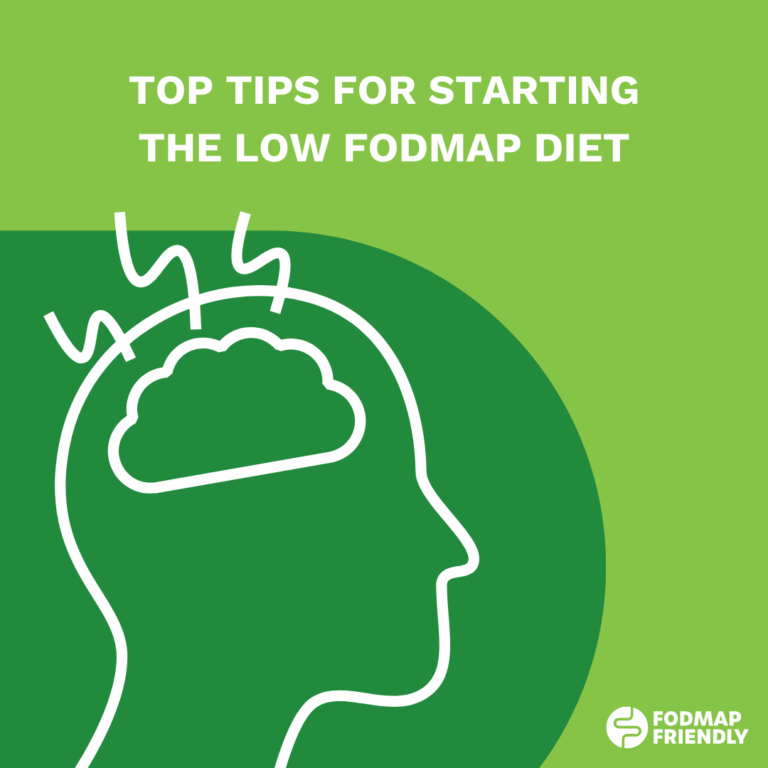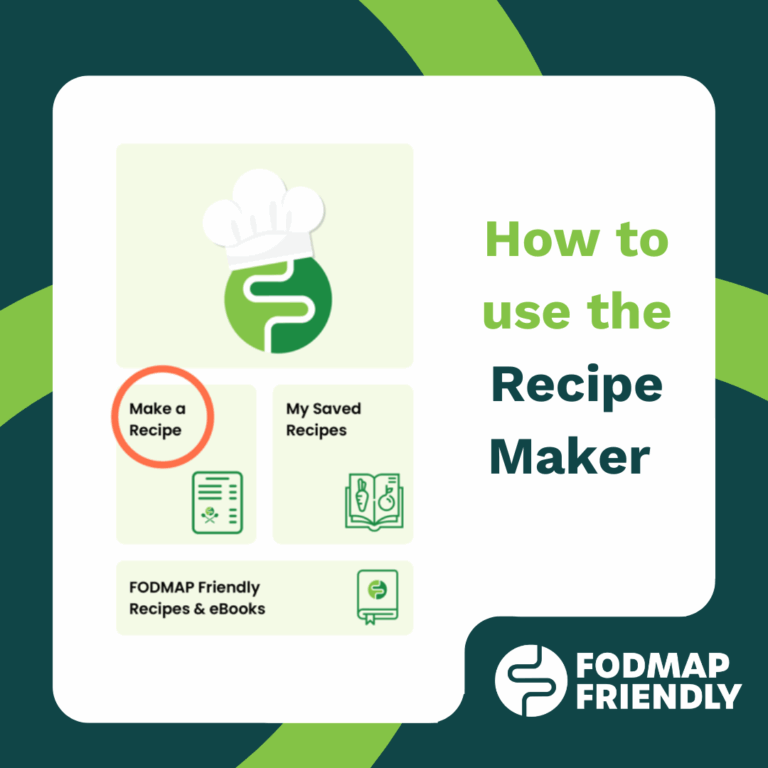
How Pre, Pro, and Postbiotics can help manage your IBS
Pre, pro, and postbiotic are compounds which, while all sounding pretty similar, are actually very different in terms of their make-up. Some are fibrous, some are enzymes, and some are even alive! However, what they do all have in common, is that they all work to promote optimal gut-health for you. Navigating what these – biotics are and their role in IBS can be confusing, but don’t worry! FODMAP Friendly is here to help.

What is gut health?
Within your intestines you have millions and millions of bacteria and although that might sound terrifying, most of these bacteria are good for you. They help to improve your digestion, your immune system, your metabolism and much more! Some of these bacteria however are bad for you. Too much bad bacteria can lead to digestive issues and even to dysbiosis which is an imbalance of good and bad bacteria. Dysbiosis can cause constipation, diarrhea, bloating and fatigue, and can lead to more serious problems such as Crohn’s disease and IBS. For those with IBS, controlling your gut health is a way of managing the condition by helping to alleviate symptoms.
Okay, so what exactly are Prebiotics?
Prebiotics are fibrous compounds that your body is unable to digest. As a result, these compounds pass through your upper digestive tract and end up for a while in your lower digestive tract. All the good bacteria within our intestines love to feed on these compounds, which leads to increased good bacteria growth. Prebiotics also work to starve off bad bacteria by competing for food, great!
Can Prebiotics Help With IBS?
It is clear that prebiotics are very important to help feed our good bacteria, but does it help with IBS? Studies have found that the taking of prebiotics in patients with IBS has helped to improve the level of a particular strain of good bacteria found within the gut called bifidobacteria – which is often low in IBS patients. This potentially means that prebiotics could help in the management of IBS. Galacto-oligosaccharide prebiotics have also shown to help reduce flatulence and bloating in several studies. Prebiotics can be taken in supplement form, but are also found naturally in some fruits and vegetables such as bananas, onions, garlic, asparagus, oats, and artichokes.
You may notice that all of these are all high FODMAP foods and you would be correct. The majority of prebiotics are Fructans and Galactans, which make up the “O” of FODMAPS.
So how do you go about getting enough prebiotics within your diet to maintain optimal gut health, while at the same time minimizing the amount of prebiotic-rich food in accordance with the low FODMAP phase of a FODMAP diet?
- 1. There are many high probiotics foods that are also low FODMAP, such as cabbage, eggplant, drained chickpeas, kiwifruit, oats, and almonds. Increasing levels of these foods is a great way to increase your pre-biotic intake. See here for our list of FODMAP friendly probiotic foods.
- 2. Remember that the low FODMAP portion of the FODMAP diet is only a short-term intervention strategy and not a long-term diet. While prebiotic foods may briefly be restricted during this phase, the eventual re-addition of these foods is important for IBS management.
- 3. Note that the low FODMAP portion of the diet is a low FODMAP diet, not a zero FODMAP diet. High fodmap high prebiotic foods may be considered low fodmap foods when consumed in low amounts.
- 4. Consider taking a low FODMAP prebiotic supplement! Canprev is a great supplement that contains plant soluble fiber with minimal FODMAPS. It’s an unflavored powder, so simply mix a scoop 1-2 times a day into a smoothie, food, or even water.
What about Probiotics?
Probiotics are foods or supplements that contain the living good bacteria found in your gut. As a result, when you take probiotics, you are directly increasing the number of good bacteria in your digestive tract. Probiotics are found in supplement form as well as fermented and fortified foods such as some yogurts, kefir, unpasteurized sauerkraut, and Kombucha. (Hint: Always check the label to see if the product contains live cultures)
Probiotics and IBS
Many patients with IBS symptoms are likely to have reduced good bacteria in their gut. Increasing your probiotic intake will help restore some of these good bacteria. Some of the most common probiotic supplements are those that contain the Bifidobacterial strain which was mentioned before. Although the evidence is limited, these have been shown to help reduce flatulence and bloating, as well as beneficially improving the gut’s barrier function. Probiotic supplements are available as well, although consulting a dietician before purchasing is advised as there is a wide variety of products. You can check out some of our FODMAP Friendly approved list of probiotics here.
What on earth is a Postbiotic then?
When Probiotic bacteria consume Prebiotics, they create waste products called postbiotics, these can be a variety of compounds such as enzymes, cell walls, and short-chain fatty acids. Although “waste”, they are responsible for the majority of benefits that pre and probiotics give.
Postbiotics are relatively “new”, within the nutrition science community and are still not fully understood yet. Some studies have suggested that increased levels of post-biotics may contribute towards improving IBS symptoms but more research is required. Post-biotics are available as supplements in certain locations, however the best way to increase your postbiotic levels is to simply consume more pre and probiotics, increasing your postbiotics.
What about Probiotics?
Prebiotics – fibrous compounds that the good bacteria in your intestines can feed on.
Probiotics – living bacteria that help to increase good bacteria numbers in your gut
Postbiotics – the beneficial by-products of when prebiotics eat probiotics
IBS patients may benefit from taking a prebiotic and/or probiotic supplement. Most pre and probiotics are cheap and relatively harmless and may even help to reduce symptoms although results may vary from person to person. A FODMAP friendly prebiotic supplement may prove especially useful during the Low FODMAPs stage of your diet.
If you are choosing a supplement, take your time in doing some research and work with a dietitian to find an evidence-based pre- or probiotic and make sure to stick to one type of supplement for at least four weeks and monitor your symptoms. A postbiotic supplement is most likely overkill as postbiotics will come with increased pre/probiotics.
As our eventual goal on the low FODMAP diet is to be able to reintroduce and enjoy a wide variety of pre and probiotic rich foods, working with a dietitian is a great way of finding out what your individual threshold for these foods are.
Written by: Ed Gregg, Nutritionist
Reviewed by: Ijmeet Maan, Accredited Practising Dietitian












